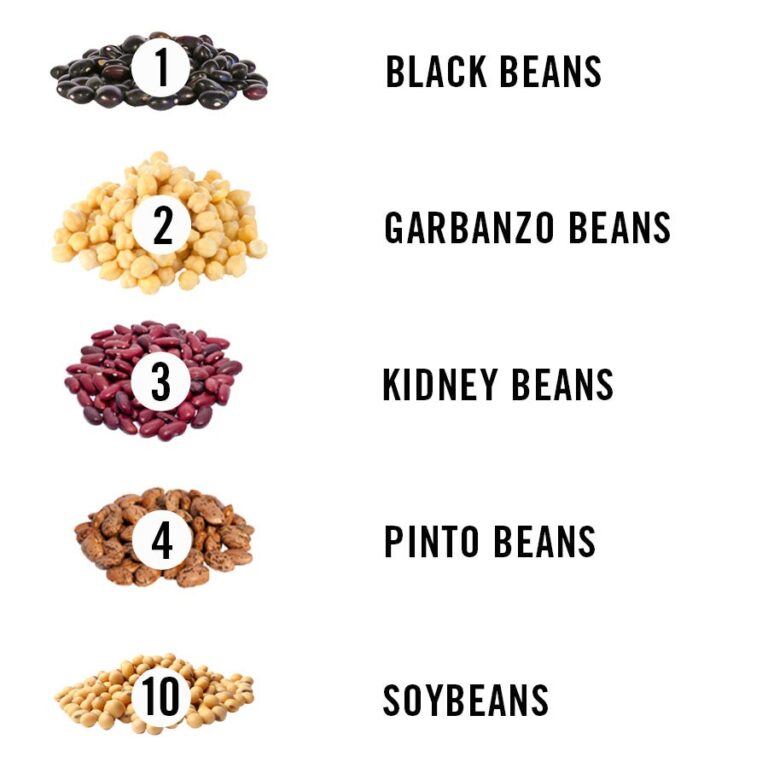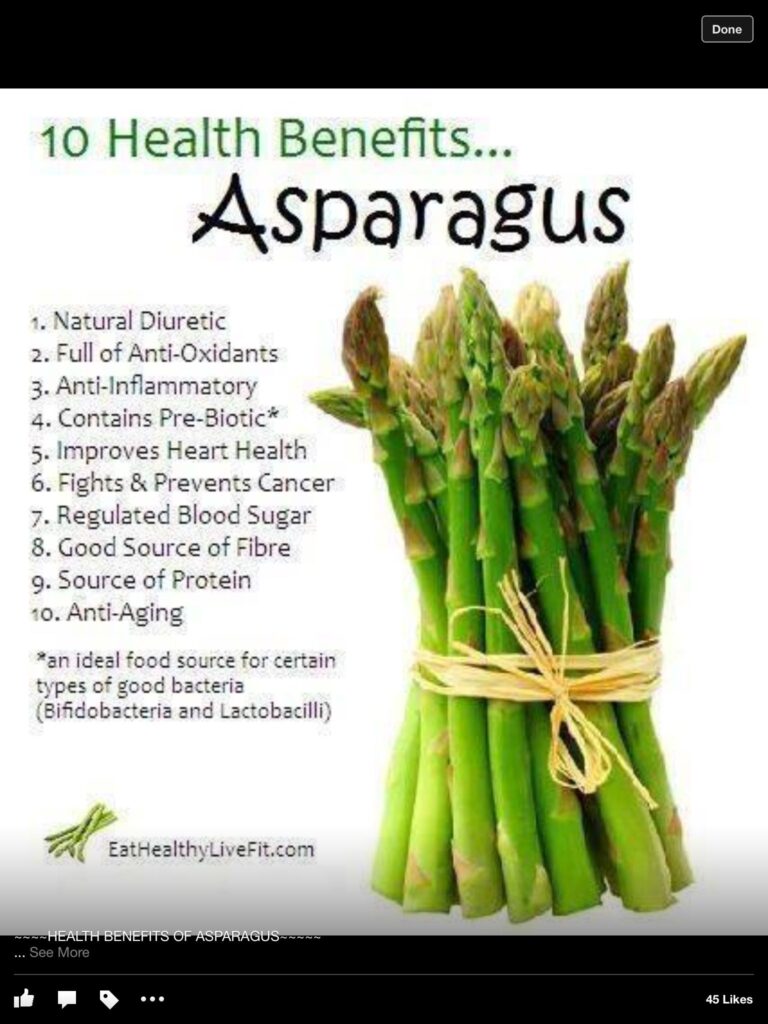The Emerald Elixir: Unearthing the Secret Nutrient in Asparagus That Fuels the Architect of Your Mind
In the quiet tapestry of our culinary world, certain foods hold a power far beyond their humble appearance. They whisper ancient secrets of vitality, their benefits often sensed long before they are scientifically understood. Among these verdant sentinels stands asparagus – the slender, elegant spear that has graced tables and medicine cabinets for millennia. Often admired for its unique flavor and delicate texture, asparagus harbors a profound secret, an emerald elixir that actively fuels and fortifies the very architect of our existence: the human brain.
This is not merely a tale of a healthy vegetable; it is the story of a specific, unsung hero of biochemistry, a nutrient so fundamental to cognitive function that its absence can unravel the very fabric of thought and memory. We embark on a journey to uncover this hidden gem, to understand its tireless work within the neural networks, and to appreciate how this unassuming spear, a whisper of ancient wisdom, offers a modern scientific marvel for our most complex organ.
I. The Verdant Legacy: Asparagus Through the Ages
Our story begins not in a laboratory, but in the sun-drenched fields of antiquity. The cultivation of asparagus dates back over 2,500 years, with its origins tracing to the Mediterranean and Asia Minor. Ancient Egyptians depicted it on their friezes, revering it for its medicinal properties and unique form. The Greeks, too, cherished it, Aristotle’s student Theophrastus describing its cultivation in the 3rd century BCE. But it was the Romans, those prodigious gourmands, who truly celebrated asparagus, developing sophisticated methods for its cultivation and even freezing it in the Alps for later consumption – a testament to its value. Emperor Augustus famously coined the phrase "faster than cooking asparagus" to describe rapid action, highlighting its quick preparation but perhaps also hinting at its swift, perceived effects.
Across these diverse cultures, asparagus was not merely a culinary delight; it was considered a potent medicine, a diuretic, an aphrodisiac, and a cleanser. While the specific scientific mechanisms remained elusive, generations observed its capacity to invigorate, to restore balance, and to promote overall well-being. This enduring reverence, passed down through herbal texts and culinary traditions, hinted at a deeper, intrinsic value. The plant’s rapid growth, its ability to spring forth from the earth with such vitality, seemed to imbue it with a special life force. Little did they know that within its tender stalks lay a complex chemical symphony, one particular note of which would prove indispensable to the very essence of human intelligence.
II. The Dawn of Discovery: From Observation to Isolation
For centuries, understanding the true power of food remained largely observational. Diets were holistic; food was medicine, and the sum of its parts was believed to be greater than any individual component. The scientific revolution, however, began to dissect this ancient wisdom, seeking to isolate the active compounds responsible for health benefits. The early 20th century marked a pivotal shift, as scientists began to identify "accessory factors" in food – tiny molecules essential for life, soon to be named "vitamins."
The journey to uncover our secret nutrient was a complex one, intertwined with the broader quest to understand a family of water-soluble compounds crucial for metabolism: the B-vitamins. Early research into pernicious anemia, a deadly blood disorder, provided crucial clues. Scientists observed that certain dietary factors could prevent or reverse this condition. In 1941, a compound was isolated from spinach leaves that was effective in treating a form of anemia in chickens. It was named "folic acid," derived from the Latin word "folium," meaning leaf, in homage to its abundant presence in leafy greens.
The initial focus was on its role in blood cell formation, but as research progressed, a more profound understanding began to emerge. Scientists realized that folic acid, or more accurately, its biologically active form, folate, was not just an "anti-anemia factor." It was a critical coenzyme in an astonishing array of cellular processes, particularly those involving rapid cell division and metabolism. And nowhere was this more critical, more demanding, than in the highly active, rapidly communicating cells of the brain. The unassuming molecule, once thought primarily for blood, was now revealed as a fundamental architect of the mind itself. This was the true unveiling, the moment when the "secret" began to reveal its profound depth.
III. Folate: The Unsung Maestro of the Mind
Our secret nutrient, folate (Vitamin B9), is not a glamorous compound. It doesn’t promise instant energy boosts or dramatic muscle growth. Instead, it is the quiet, diligent maestro, orchestrating a complex symphony of biochemical reactions essential for brain health, mood regulation, and cognitive function. Its influence is so pervasive that it touches almost every aspect of neural activity.
Let’s delve into the intricate dance that folate performs within the brain, revealing why it is truly the maestro of the mind:
A. The Methylation Cycle: The Biochemical Heartbeat of the Brain
At the core of folate’s brain-boosting prowess lies its indispensable role in the methylation cycle. This is not a simple reaction; it’s a fundamental biochemical process occurring billions of times every second in every cell, especially crucial in the brain. Think of methylation as a tiny molecular "on-off" switch, where a methyl group (one carbon atom and three hydrogen atoms) is added to or removed from molecules like DNA, proteins, and neurotransmitters. This seemingly small action has enormous consequences, affecting gene expression, protein function, and the synthesis of vital compounds.
Folate, specifically in its active form, L-methylfolate, is a primary methyl donor. It keeps the methylation cycle running smoothly, ensuring that these vital switches are flipped correctly. Without adequate folate, this cycle falters, leading to a cascade of downstream problems that directly impact brain health.
B. Homocysteine: The Silent Threat
One of the most critical functions of folate within the methylation cycle is its ability to neutralize a potentially harmful amino acid called homocysteine. When the methylation cycle is inefficient, often due to insufficient folate (and its B-vitamin partners, B12 and B6), homocysteine levels rise.
High levels of homocysteine are not merely a biomarker; they are a direct threat to brain health. Elevated homocysteine is a well-established risk factor for:
- Cognitive Decline: It damages blood vessels, impairing blood flow to the brain, and directly contributes to neuronal toxicity.
- Neurodegenerative Diseases: It is strongly linked to an increased risk of Alzheimer’s disease and Parkinson’s disease, accelerating neuronal damage and inflammation.
- Stroke: By promoting blood clot formation and arterial damage, high homocysteine increases stroke risk, which devastates brain tissue.
Folate, acting as a coenzyme, helps convert homocysteine back into methionine, a harmless and essential amino acid. In essence, folate is the vigilant guardian, continuously clearing away this neurotoxin, protecting our precious brain cells and their intricate vascular support system.
C. Neurotransmitter Synthesis: The Chemical Messengers of Mood and Mind
The brain communicates through an elaborate network of chemical messengers called neurotransmitters. These compounds dictate our mood, memory, focus, sleep, and emotional responses. Folate is a vital player in the synthesis of several key neurotransmitters:
- Serotonin: Often dubbed the "happiness hormone," serotonin regulates mood, sleep, appetite, and social behavior. Folate is crucial for the conversion of tryptophan to serotonin.
- Dopamine: Essential for motivation, reward, pleasure, and motor control. Folate contributes to the synthesis pathways of dopamine.
- Norepinephrine: Involved in alertness, arousal, attention, and the "fight or flight" response.
When folate levels are low, the production of these neurotransmitters can be compromised, leading to a range of issues from mood disorders like depression and anxiety to impaired cognitive function and reduced mental clarity. Folate ensures that the brain’s internal communication system remains robust and balanced.
D. DNA Synthesis & Repair: The Blueprint of Brain Life
Brain cells, like all cells, are constantly undergoing processes of renewal, repair, and gene expression. DNA, the blueprint of life, is under constant threat from environmental factors and metabolic byproducts. Folate is absolutely essential for the synthesis of new DNA and RNA, the genetic material that dictates cell function and identity.
In the brain, where neurons are long-lived and highly active, maintaining genomic integrity is paramount. Folate helps ensure that DNA replication is accurate and that DNA repair mechanisms are efficient. This protection against genetic damage is crucial for preventing cellular dysfunction and maintaining the long-term health and stability of neuronal populations. Without adequate folate, the brain’s ability to repair itself and maintain its intricate structure is severely compromised.
E. Myelin Sheath Formation: The Insulation for Rapid Neural Communication
Imagine the brain’s neural pathways as a vast electrical grid. For signals to travel rapidly and efficiently, the "wires" (axons) need insulation. This insulation is provided by the myelin sheath, a fatty layer that wraps around nerve fibers, allowing electrical impulses to leap from one point to another, significantly speeding up signal transmission.
Folate, through its role in the methylation cycle and the synthesis of precursors for lipids, contributes indirectly but significantly to the health and integrity of the myelin sheath. Compromised myelination can lead to slower processing speed, cognitive deficits, and is a hallmark of various neurological disorders. By supporting healthy myelin, folate helps ensure that the brain’s vast communication network operates at peak efficiency.
F. Neurogenesis & Synaptic Plasticity: A Youthful, Adaptable Brain
The brain is not static; it is remarkably dynamic and adaptable. Neurogenesis, the birth of new neurons, particularly in areas like the hippocampus (crucial for memory), continues throughout life. Synaptic plasticity refers to the brain’s ability to form new connections and strengthen or weaken existing ones, forming the basis of learning and memory.
Emerging research suggests that folate plays a role in supporting these processes. Its influence on gene expression, neurotransmitter balance, and cellular health creates an optimal environment for neurogenesis and synaptic plasticity. By fostering these abilities, folate contributes to a brain that remains youthful, adaptable, and capable of continuous learning and memory formation.
In essence, folate is the master builder, the meticulous repairman, and the efficient messenger of the brain’s grand city. It works behind the scenes, ensuring that every function, from the most basic cellular repair to the most complex cognitive process, runs smoothly.
IV. The Asparagus Advantage: A Symphony of Support
While folate can be found in various leafy greens and legumes, asparagus holds a special advantage. It’s not just the quantity of folate, but the quality, bioavailability, and the synergistic presence of other brain-boosting compounds that make this emerald spear a true nutritional powerhouse for the mind.
A. Bioavailability: Absorbing the Goodness
Not all forms of folate are created equal. The synthetic form, folic acid, found in supplements and fortified foods, requires conversion in the body to its active form, L-methylfolate. Some individuals have genetic variations (e.g., in the MTHFR gene) that impair this conversion, making them less efficient at utilizing synthetic folic acid.
Asparagus, however, provides naturally occurring folate (primarily 5-methyltetrahydrofolate), which is already in a highly bioavailable form, meaning it can be readily absorbed and utilized by the body without extensive conversion. This natural form ensures that the brain receives the folate it needs directly, efficiently, and effectively.
B. Beyond Folate: A Supporting Cast of Brain Nutrients
Asparagus is far more than a one-trick pony. It offers a holistic package of nutrients that work in concert with folate to support optimal brain health:
-
Vitamin K: This often-overlooked vitamin is crucial for brain health. It’s involved in the synthesis of sphingolipids, which are vital components of brain cell membranes and the myelin sheath. Vitamin K also plays a role in protecting the brain from oxidative stress and inflammation, and research suggests a link between adequate Vitamin K intake and reduced risk of neurodegenerative diseases. Asparagus is an excellent source of Vitamin K.
-
Antioxidants (Glutathione, Flavonoids): The brain is highly susceptible to oxidative stress due to its high metabolic rate and rich lipid content. Asparagus is rich in powerful antioxidants, including glutathione (often called the "master antioxidant") and various flavonoids (like quercetin and kaempferol). These compounds combat free radicals, reduce inflammation, and protect delicate brain cells from damage, preserving cognitive function and slowing the aging process.
-
Prebiotic Fiber: While not directly absorbed, the fiber in asparagus feeds beneficial bacteria in the gut. This is crucial for the gut-brain axis, a bidirectional communication system that profoundly influences mood, cognition, and overall brain health. A healthy gut microbiome produces short-chain fatty acids (SCFAs) and even neurotransmitter precursors, sending positive signals to the brain. Asparagus’s prebiotic fiber content thus indirectly supports mental clarity and emotional well-being.
-
Other B-Vitamins and Minerals: Asparagus contains other B-vitamins (B1, B2, B6) that are essential cofactors for folate and the methylation cycle, as well as minerals like potassium, iron, and manganese, all of which contribute to nerve function, blood flow, and cellular energy production in the brain.
The asparagus advantage lies in this complete nutritional symphony. It’s not just a single nutrient; it’s a meticulously crafted biological package designed by nature to deliver comprehensive support for brain function.
V. The Unseen Erosion: When the Maestro Falters
Given folate’s profound and pervasive role in brain health, it is perhaps unsurprising that its deficiency can have devastating consequences. While severe, overt folate deficiency leading to megaloblastic anemia is relatively rare in developed countries due to fortification, subclinical or marginal deficiency is far more common than many realize. This unseen erosion, a subtle but persistent lack of adequate folate, can gradually undermine cognitive function and contribute to a range of neurological and psychiatric issues.
A. Cognitive Impairment: The Slow Fade
One of the most insidious effects of chronic folate deficiency is its impact on cognitive function. The brain, deprived of its maestro, begins to falter:
- Memory Loss: Difficulty recalling information, both recent and remote.
- Poor Concentration and Attention: Inability to focus on tasks, easily distracted.
- Reduced Processing Speed: Slower thinking, difficulty grasping new concepts.
- Executive Dysfunction: Impaired planning, problem-solving, and decision-making abilities.
These symptoms often manifest gradually, initially dismissed as normal aging or stress. However, persistent folate deficiency can accelerate cognitive decline, making the brain less resilient to the challenges of aging and environmental stressors.
B. Mood Disorders: The Neurotransmitter Connection
Folate’s critical role in neurotransmitter synthesis means that its deficiency can directly impact mental health:
- Depression: Low folate levels are consistently found in individuals with depression, and folate supplementation can enhance the effectiveness of antidepressant medications. The impaired synthesis of serotonin, dopamine, and norepinephrine directly contributes to symptoms of sadness, anhedonia, and low motivation.
- Anxiety: Imbalances in neurotransmitters can lead to heightened states of anxiety and stress.
- Psychosis: In severe cases, folate deficiency has been linked to more serious psychiatric conditions, highlighting its fundamental importance in maintaining neural equilibrium.
The brain, unable to produce its calming and motivating chemicals efficiently, can plunge into states of despair and agitation, illustrating the profound connection between diet and mental well-being.
C. Neurodegenerative Risks: Accelerating the Decline
Perhaps most alarmingly, chronic folate deficiency significantly increases the risk of developing neurodegenerative diseases:
- Alzheimer’s Disease: Elevated homocysteine levels, a direct consequence of folate deficiency, are a strong independent risk factor for Alzheimer’s. Homocysteine damages neurons and promotes the formation of amyloid plaques and tau tangles, the pathological hallmarks of the disease.
- Parkinson’s Disease: Research suggests a link between folate status and Parkinson’s, particularly through its role in protecting dopaminergic neurons.
- Vascular Dementia: By contributing to arterial damage and impaired cerebral blood flow, folate deficiency can exacerbate vascular dementia, a form of cognitive decline caused by mini-strokes or reduced blood supply to the brain.
The silent, gradual erosion caused by insufficient folate intake can, over years and decades, create a fertile ground for these devastating conditions, making the appreciation and adequate intake of this nutrient a crucial strategy for long-term brain health.
VI. Cultivating Cognitive Resilience: Integrating Asparagus into a Brain-Healthy Life
Understanding the profound importance of folate and the comprehensive brain-boosting package offered by asparagus naturally leads to the question: how can we best harness this emerald elixir for our cognitive well-being? The answer lies in mindful integration into a broader, brain-healthy lifestyle.
A. Practical Tips for Asparagus Consumption
- Fresh is Best: Choose vibrant, firm spears with closed tips. Freshness ensures maximum nutrient content.
- Gentle Cooking Methods: Overcooking can degrade heat-sensitive nutrients like folate. Steaming, blanching, roasting, or grilling for a short duration (until tender-crisp) are ideal. Avoid boiling excessively.
- Variety is Key: Asparagus can be enjoyed simply steamed with a drizzle of olive oil, roasted with garlic and lemon, added to stir-fries, omelets, salads, or even pureed into soups. Experiment to find your favorite ways to incorporate it regularly.
- Portion Power: Aim for at least 3-4 servings of asparagus per week, or even more, as part of a varied diet. A serving is typically 5-6 spears.
B. Synergistic Pairings: The Power of Nutritional Harmony
Remember that folate doesn’t work in isolation. For optimal brain health, consider these synergistic pairings:
- Vitamin B12: Folate and B12 are intimately linked in the methylation cycle. Folate cannot function effectively without adequate B12. Ensure your diet includes B12-rich foods (meat, fish, dairy, fortified plant-based alternatives).
- Other Folate-Rich Foods: While asparagus is a star, diversify your folate intake with other leafy greens (spinach, kale), legumes (lentils, chickpeas), broccoli, avocado, and citrus fruits.
- Omega-3 Fatty Acids: Found in fatty fish (salmon, mackerel) and flaxseeds, omega-3s are critical for brain cell membrane health and reducing inflammation. They complement folate’s neuroprotective actions.
- Antioxidant-Rich Fruits and Vegetables: Pair asparagus with berries, bell peppers, and other colorful produce to enhance overall antioxidant defense.
C. Beyond the Plate: A Holistic Approach
While diet is foundational, a truly resilient brain requires a holistic approach:
- Regular Exercise: Boosts blood flow to the brain, stimulates neurogenesis, and reduces stress.
- Quality Sleep: Essential for memory consolidation, waste removal from the brain, and neuronal repair.
- Stress Management: Chronic stress elevates cortisol, which can damage brain cells. Practices like meditation, mindfulness, and spending time in nature are crucial.
- Mental Stimulation: Keep your brain active with learning new skills, puzzles, reading, and social interaction.
- Social Connection: Strong social ties are linked to better cognitive function and reduced risk of dementia.
By embracing these pillars, you create an environment where the "secret nutrient" in asparagus can perform its maestro duties to the fullest, fostering a brain that is sharp, resilient, and vibrant.
VII. The Horizon of Understanding: Future Research and Personalized Nutrition
Our journey into the emerald elixir is not complete; it continues with ongoing scientific inquiry. The more we learn about the intricate dance between diet and brain health, the more we appreciate the profound wisdom encoded in nature’s simplest offerings.
Future research is delving deeper into:
- Genetics and Folate Metabolism: The discovery of genetic variants, such as the MTHFR gene, which affects the body’s ability to convert folate into its active form, opens doors for personalized nutrition. Understanding an individual’s genetic predisposition could lead to tailored dietary recommendations or specific forms of folate supplementation.
- Folate and Early Brain Development: The foundational role of folate during pregnancy in preventing neural tube defects is well-established. However, new studies are exploring its broader impact on cognitive development throughout childhood and adolescence, potentially influencing intelligence, learning abilities, and mental health trajectories.
- Dietary Patterns vs. Isolated Supplements: While supplements can play a role, the emphasis is increasingly shifting towards the power of whole dietary patterns. The synergistic effects of nutrients found naturally in foods like asparagus often surpass the benefits of isolated compounds, underscoring the importance of a diverse, nutrient-rich diet.
- The Gut-Brain-Folate Connection: Emerging science is exploring how the gut microbiome influences folate synthesis and absorption, and how folate, in turn, impacts gut health and the production of neuroactive compounds by gut bacteria.
The humble asparagus continues to yield its secrets, reminding us that the answers to optimal health often lie not in complex pharmaceuticals, but in the elegant simplicity of the natural world. The ongoing quest to unlock more secrets from humble vegetables promises a future where our understanding of nutrition empowers us to cultivate cognitive vitality throughout life.
Conclusion
From ancient revered vegetable to modern scientific marvel, asparagus stands as a testament to nature’s profound wisdom. Its "secret nutrient," folate, orchestrates a symphony of processes vital for brain health – from safeguarding DNA and neutralizing neurotoxins to synthesizing the very neurotransmitters that govern our mood and memory. Supported by a chorus of other beneficial compounds like Vitamin K, powerful antioxidants, and prebiotic fiber, asparagus offers a comprehensive package for nurturing our most complex and precious organ.
In every tender spear of asparagus lies not just a culinary delight, but a potent, emerald elixir, inviting us to nourish the very essence of who we are: our minds. By embracing this ancient wisdom and modern scientific understanding, we can empower ourselves to cultivate a sharper memory, a more balanced mood, and a resilient cognitive future. Let us savor this gift from the earth, appreciating the quiet power that fuels the architect of our thoughts, our dreams, and our very being.






